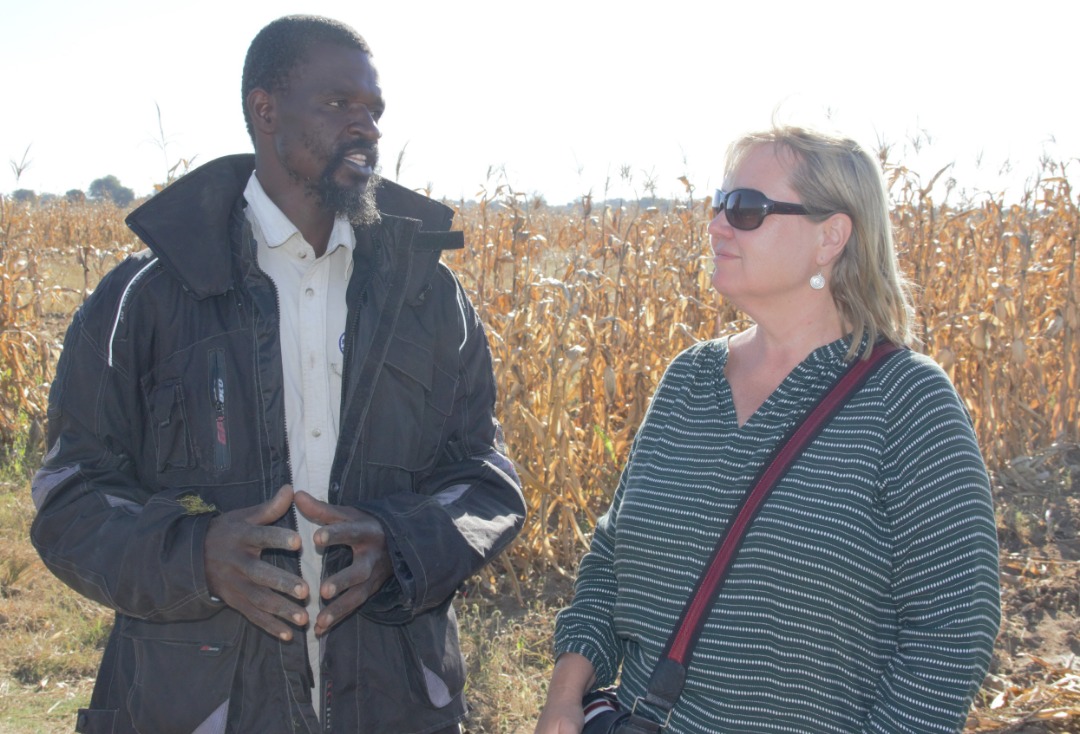Angelica Broman, First Secretary at the Swedish Embassy in Zimbabwe has said her country is one of the founders and long-standing supporter of the UN and believer in multilateralism which has always supported Zimbabwe since its struggle for independence.
“Sweden has always been on the forefront advocating for issues, such as human rights, with a strong focus on gender equality and combating gender based violence. My country also promotes freedom of expression and transparency, with strong anti-corruption efforts, as well as promoting mechanisms to combat sexual harassment and exploitation,” Broman said.
Zimbabwe has one of the highest prevalence of gender based violence in the region. A high number of girls are forced to marry older men. Maternal and child death is still far too high while the limited access to safe abortions and contraceptives is one of the factors contributing to a large number of women dying and girls drooping out of school.
“Another huge problem is early teenage pregnancy, often due to rape. One out of three girls are raped before they are 16 years old. The number of boys raped is not even known, since very few come forwards and report. We could go on and on, and list problems that occur due to lack of gender equality here in Zimbabwe, but the point is not to focus on the problems but to find smart innovative solutions. How can we ensure equality?
“It is all of our responsibility to inform and take action for positive change. We know that mere information is not enough to change attitudes and behaviours. Therefore, we need to have more coherent communication for development. The media has a crucial role in working for ending discrimination and enhancing gender equality. Media can investigate and high-light gender issues and expose sexual abuse and discrimination,” Broman added.
She said as part of the Swedish Embassy’s commitment to addressing gender equities in Zimbabwe, the Embassy is taking a deliberate effort to end forced child marriages. Forced child marriage is a serious human rights violation, which affects rights to health, education, equality, non-discrimination and the right to live free from violence and exploitation. It places young girls and adolescents at risk of sexual, physical and psychological violence. In this regard, she said, Sweden also focuses on positive parenting, without any corporal punishment.
“The World Bank Gender Lab who conduct research globally and have a regional office in Africa has established that fathers positive parenting is crucial. Dads who engage positive with their daughters will assist to:
- Reduce Risk of HIV/STI and unintended pregnancy
- Early motherhood can limit future earnings and has an impact on national economy – also leading to higher mortality amongst young girls
- Keep girls in school – to higher education
- Make women enter labour markets thus enhancing women’s economic empowerment thus improving the national economy at large.”
Broman added that investing in gender equality enhances economic development.
“We often talk about the 4 Rs: Gender equality means equal Rights, equal access to Resources, equal Respect and mutual Responsibility. Gender includes both men and women. Often gender is confused with women issues, but research has found that it is vital to to involve men into gender issues. Violence against children is a reflection of family breakdown and calls for the protection of the life, well-being and dignity of the child. This is a major reason why the prevention of domestic violence against children and GBV is nowadays recognised as a human rights concern. Parents need support on how to raise children without using violence, we need to come together with good parenting models and todays discussions has really showed that there is a great deal of work already being done in that regards.
“Many parents still believe that abuse of children such as spanking and screaming at your child are normal methods of rising children. Ending vicious circles of violence is hard, since if one grew up in a violent home – the behavioural patterns you picked up as a child while be the norm for your adult life. To change your attitude and transform your norms is hard, but not impossible. We need the multitude of mechanisms to enhance peace in the home and end sexual abuse,” the First Secretary at the Swedish Embassy emphasised.
She added this: “Men are crucial in the fight against GBV. Under the banner “Because I am a man” we have together with the UN, promoted 16 prominent Zimbabwean men – champions against GBV. All 16-men joining forces for the 16-days against GBV in 2018, are advocating for women and children’s rights. They all have refreshing perspective on positive masculinity. You can find more information about the campaign on social media under “Because I am a Man Zimbabwe.” We need more men and women to join the struggle for an equal society, which respects each and every one. You representatives of the media expert of the country should be on the forefront ensuring gender rights.”






